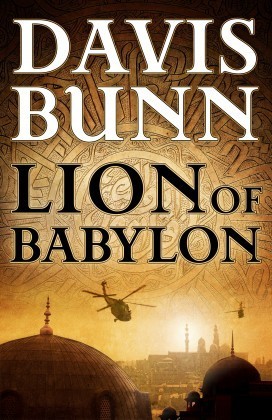Iraq Native Points Out Inaccuracies in 'Lion of Babylon'

I have been reading your book Lion of Babylon and have enjoyed the story so far (finished almost half of it).
I am originally from Iraq and have been in the USA for 21 years. I visited Baghdad 4 times after the occupation/liberation and could well imagine the situations/places you have described in your book.
I have been also really impressed on how precise you described the Iraqi personality in some places. I understand the book was an imaginary story but you have stated several points which occurred to be facts, and unfortunately, some of them were incorrect.
I wished you had asked an Iraqi person to review the book for you before it was published. Below, are some of those mistakes and will let you know if I find some more:
Ramadan CAN NEVER be 28 days. It is either 29 or 30 days.
The last time Ramadan happened to be in the summer, was in the 80s. Now it is moving towards the summer again, like it started today (August 1, 2010) and will move back 10 days every year, so it won't be in May until probably 2017. During the occupation, Ramadan was always during the winter and was never in May.
Abdul Kader Al-Gailani was NOT a Shia leader like what you stated. On the contrary, he was one of the very famous Sunni leaders in Iraq. In fact, Shia Muslims may get irritated if they hear that Al-Gailani has been indicated as one of their leaders!
The names you chose were very uncommon Iraqi names. We have never had any person in Iraq called Al-Jacobi (from Jacob). In Iraq Jacob is called Ya'coob and if you were to use that as a last name it should have been "Al-Ya'coobi." They never use the name "Abdul". They never use "Lahm" as a name. Lahm in Arabic means "Meat" and using that as a name made me laugh.
I hope you didn't get offended by that message and as I said, the book is really good and I really enjoyed the part that I have already finished. Best regards!
Ezdihar Hassoun, Ph.D.
Professor
The University of Toledo
College of Pharmacy
Dear Dr. Hassoun,
I cannot tell you what a delight it was to receive your email. The points you have mentioned have been noted carefully, and some changes will be made to the reprint. Particularly the Ramadan dating and the correct background of Al-Galiani. These are crucial points, for which I am most grateful.
The naming of Jacobi and Lahm will remain as they are. Jacobi was as close as I could come to the pronunciation in a form that would be swiftly accepted by a US reader with no background knowledge of your wonderful land. And Lahm is interesting. But Lahm he is, and Lahm he will remain.
One point you might find of interest. My primary source for most of the scenes written through the Arab's eyes was the son of a senior Iraqi cleric. I cannot say how senior without giving his identity away, which I promised not to do. He and I became friends several years ago, and many of our discussions centered upon how difficult it was for westerners to be interested in contemporary Arab fiction and film.
I was trying to explain the concepts of universal archetypes, and the unconscious demand for stories to follow certain patterns, and was making little headway, until I suggested he actually participate in the formation of a story. But one where the Arab needed to be a Christian.
He agreed, and in so doing we took our friendship to an entirely new level. This exercise became a real education, as much for me as for him and perhaps more. The wisdom of your lands, the heritage, and the richness came to life in the way this gentleman revealed his heart. It was a gift, one that has left me deeply bonded to your nation. I completed this book a richer man.
Here's a bit of personal background about why I wrote Lion of Babylon:
After completing my graduate studies, I taught at a at the American University of Switzerland for a year. This was the year the AU of Lebanon was forced to close because of the conflict, and a number of their students migrated to our school.
My background was economics and finance – I only began writing in my thirties. I was hired by a family that had moved their company from Beirut to Switzerland, an international consortium that owned part of John Deere in Saudi Arabia, a shipping company moved to Athens, and one of the largest generic pharmaceutical groups in Switzerland. I was the only non-Moslem in the management structure, and part of my job requirements was to take instruction in the Koran and Islamic history from an imam teaching at the local university.
I have long wanted to put this part of my personal heritage to use in a story, but it was not until I met the Shia leader's son that I found myself in the position to structure a true Arab's viewpoint.
To have a local like yourself speak in this way about my efforts, my first attempt at a Middle East story, means a great deal.
Again, thank you for writing.
Warm personal regards,
Davis










